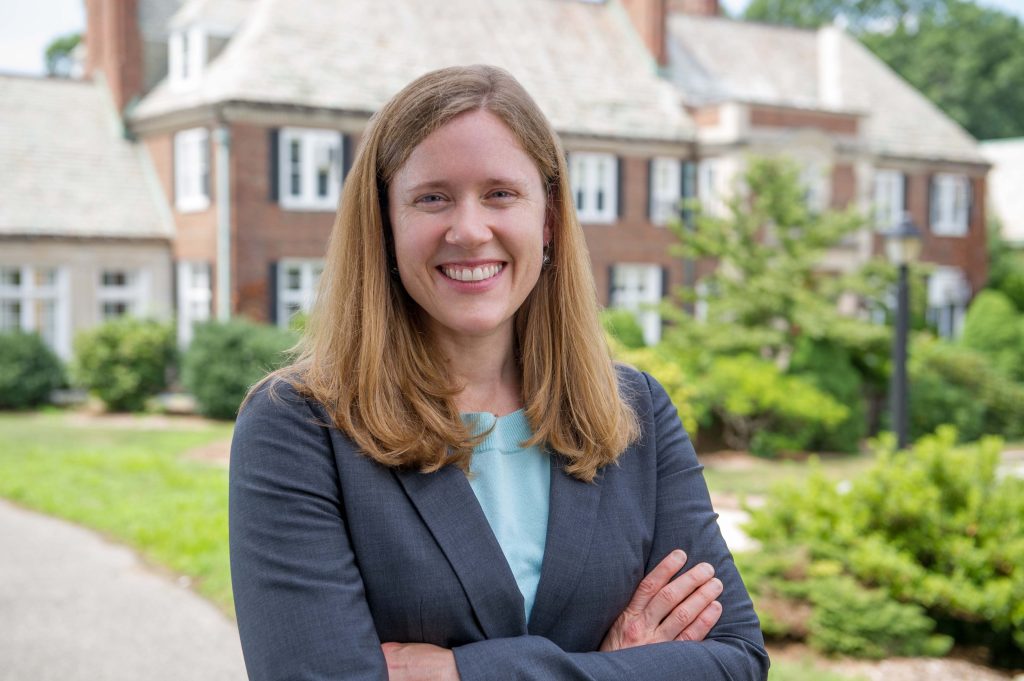BC Law Professors Reena Parikh and Mary Holper filed separate amicus briefs on March 28 in support of respondents with the US Supreme Court in US Department of State v. Muñoz. The case involves a US citizen, Sandra Muñoz, who has been separated from her Salvadoran husband, Luis Asencio-Cordero, for nearly a decade because the Department of State denied him an immigrant visa to enter the US in 2015 without due process or factual basis for the denial.
In the ensuing litigation, it appeared that DOS’s denial may have been influenced by presumed and erroneous assumptions about potential criminal activity or gang affiliation based only on tattoos that do not signify such affiliation. The Supreme Court is considering (1) whether a consular officer’s refusal of a visa to a citizen’s noncitizen spouse impinges upon a constitutionally protected interest of the citizen; and (2) whether, assuming that such a constitutional interest exists, notifying a visa applicant that he was deemed inadmissible under a particular immigration statute without providing a factual basis suffices to provide any process that is due.
Parikh joined six other former Department of Homeland Security officials as amici who were involved in policy, or adjudicating, supervising, or providing legal guidance on adjudications of immigration petitions and applications. Parikh served as associate counsel in US Citizenship and Immigration Services (a component agency of the US Department of Homeland Security or DHS) for five years prior to beginning her career as a law professor.
Among the amici, she was joined by BC Law alumnus Leon Rodriguez ’88, who served as the director of USCIS from 2014 to 2017 and is currently a partner at Seyfarth Shaw LLP. Attorneys from Patterson Belknap Webb & Tyler, including Rhick Bose (BC MCAS ’09), served as counsel for amici and authored the former DHS officials’ amicus brief.
“This is an important case about enshrining basic constitutional protections, so that our immigration laws are fairly administered to all and do not unjustly separate families,” said Parikh. “I am proud to use the expertise I gained from my time in USCIS to show how due process rights in the immigrant visa application process are consistent with and, in fact, strengthen national security.”
In a separate brief, Holper joined seven other professors and scholars as amici, all of whom have expertise on gangs—including on law enforcement’s use of tattoos to designate gang membership—and the intersection of gang membership-designation and immigration law. The Federal Immigration Litigation Clinic at the University of Minnesota Law School served as counsel for amici and authored the brief.
Holper described the case as “one of many examples where immigration officials unfairly attach sinister meaning to an innocent, expressive behavior—getting a tattoo—when that behavior is performed by a person of color. It demonstrates how unchecked discretion, which is omnipresent in the immigration system, can reinforce implicit biases. The case asks the Court to require that some procedures exist to check that exercise of discretion.”
BC Law’s imprint on Muñoz extends further still. Gabriella Zoia ’23, Kayla LaRosa ’23, and colleagues at Manatt, Phelps & Phillips co-authored another amicus brief on behalf of the Hebrew and Immigrant Aid Society, discussing how the right to family unity is deeply rooted in the history and tradition of the United States.
Representing Muñoz and Asencio-Cordero in the case is the National Immigrant Justice Center, which is co-counseling with Eric Lee of the Diamante Law Group and Berkeley School of Law Dean Erwin Chemerinsky. Oral argument before the Supreme Court is scheduled for April 23 at 10 a.m.
Additional coverage of Parikh and Holper’s amicus briefs can be found in the LA Times and Law360. Find the DHS officials amicus brief here and the professors and scholars brief here.



